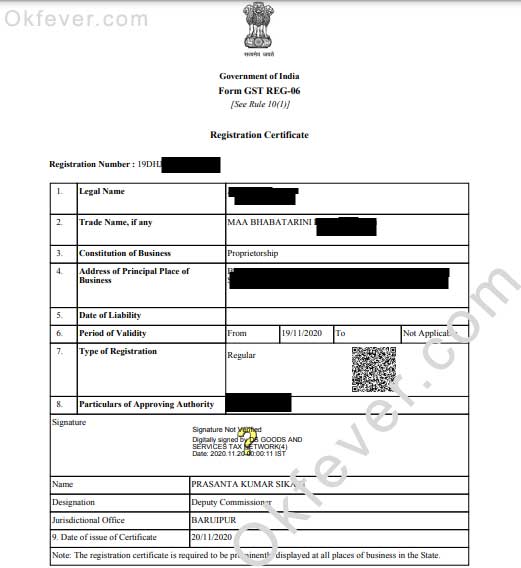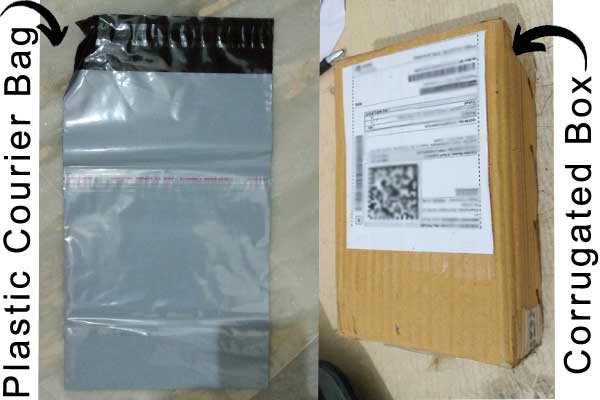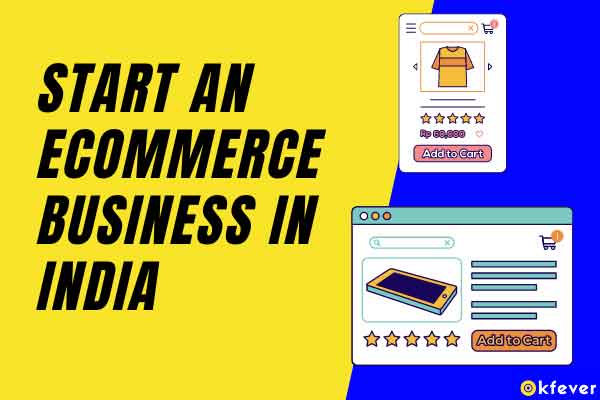Nowadays starting an eCommerce business in INDIA is easy and profitable because internet users are growing at a rapid rate every year.
There are two easy ways you can start your own e-commerce business in India, one is through a self-hosted website like woo-commerce or Shopify and another way is through Third-party marketplaces like Amazon, Flipkart, Meesho, etc.
Here’s the step-by-step guide to starting an E-commerce business in India…
On this page
- Step 1: Business Plan and Model
- Step 2: Choose an eCommerce platform
- Step 3: Choose the right product and Niche
- Step 4: Registered your Business
- Step 5:Packaging Materials
- Step 6: E-commerce logistics
- Step 7: Bank Account
- Step 8: Payment Gateway
- Step 9: Marketing and Advertising
- How much does it cost to start an Ecommerce business in India
- What products can I sell?
- Do I have to pay taxes on items I sell online?
- FAQs
Step 1: Business Plan and Model
Before starting an eCommerce business in India, you must create or choose the right business plan and model at first.
Easy to start and the lowest cost business model is Dropshipping. This business model does not require initial product investment, you just need to partner with the supplier or wholesaler.
The advantage of the Dropship business model is that the supplier or wholesaler will deliver the product to your customer on your behalf and they will also handle Order confirmation calls, product packaging, return, etc.
The next business model is pure eCommerce where you have to do everything and also stock the products that you will sell.
Also read – Nuutjob net worth After Shar Tank, Revenue, Owner, Sales
Step 2: Choose an eCommerce platform
Choosing an eCommerce platform for your online business is very crucial because your online store or business depends on that platform.
If you don’t want to handle customer support, marketing, shipping, etc. on your own, you can choose a third-party marketplace, or if you want to control everything yourself, you have to choose a self-hosted platform.
If you want to start your online business through Dropshipping, you need to choose a self-hosted platform like Wocommerce or Shopify.
And if you do not want the hassle of website design, and marketing, then you should go with Amazon, Flipkart, and Meesho as a seller.
Step 3: Choose the right product and Niche
Even if you choose the right business model and the right platform, but you choose the wrong product, then your product will not be sold and your business will close.
When you first start an online business or eCommerce store, you can start with a general store where you can test four to five types of products to see which ones are selling better in your online store in India,
then sell those kinds of products in your online store, and, add more of those kinds of products to your inventory, and gradually moved toward a single category or niche and try to establish your store as an established brand.
Also read – What is FCO in Export Import Business?
Step 4: Registered your Business
Basically, you can register five types of business in India Private Limited Company,
Limited Liability Partnership, General Partnership, Sole Proprietorship, and One Person Company.
The easiest way to start a business is a sole proprietorship and to start a sole proprietorship business you just need sales tax registration which is GST.
If you only have GST you can easily start an online business and if you want to do online business in India then GST is Mandatory for both Platform Self-hosted and also third-party Marketplace.

Step 5:Packaging Materials
When you send a product from one place to another, you have to pay attention to the packaging because if the packaging is not good then your product will be wasted while shipping and you will lose a lot of money.
There are basically two types of packaging used in the eCommerce business in India for product shipping one is Corrugated Boxes and the other is Plastic Courier Bags.

Step 6: E-commerce logistics
The main part of the online business is the e-commerce logistics partner or delivery partner, their main job is to deliver the product from you to your customer and in the case of cash on delivery, the courier partner will collect cash from your customers and deposit it into your bank account.
If you do not choose the right logistics partner, your RTO (Return to Origin) may increase.
If you want to send the product to the customers very easily then you can register in Shiprocket.
Step 7: Bank Account
Doing business online requires a current bank account, if you start your online business on a self-hosted platform then you will go with your personal bank account but if you want to do business in a third-party marketplace then you need a current bank account.
Step 8: Payment Gateway
A payment gateway is very important for self-hosted eCommerce sellers because without it online payments cannot be accepted. There is no need for those who will sell in the third-party marketplace.
Some of the most popular payment gateways in India are Instagram, Paytm, CCAvenue, Payu, Razorpay, etc. One of the most used payment gateways in India is Razorpay and I also use it to receive online payments at my eCommerce store.
Step 9: Marketing and Advertising
Marketing is the main part of any business, you can easily reach your potential customers through marketing.
When you open a new business, sales will not come easily because no one knows your brand name or what you sell, but if you want to bring customers and sales from the first day, then you need to take the help of advertising.
If you want to grow your business in less time then you can take the help of advertising. With the help of the world’s top ad platforms like Facebook ads, Google ads, you can easily show the ads to your targeted audience and make the sale.
How much does it cost to start an Ecommerce business in India
The cost of starting an eCommerce business in India depends on your business model, the estimated cost to start an eCommerce business in India is around Rs.19,000.
Here’s the cost to start an Ecommerce business in India in detail
| Requirements | Initial investment |
|---|---|
| Product | Rs.3,000 to 5,000 |
| Packaging | Rs.5 to 10 per product |
| Gst registration | Rs.1,500 to 2,000 (per year) |
| Printer | Minimum Rs.5,000 or You can print from a local xerox or photocopy center. |
| Bank Account | Current Bank Account opening costs rs.5,000 to 10,000 |
| Storeroom or Warehouse | Rs.2,000 to 5,000 (Depending on your location ) |
Here’s the cost to start a Dropshipping business in India
| Requirements | Initial investment |
|---|---|
| Product | Rs.3-5 thousand |
| Packaging | N/A or Zero |
| Gst Registration | Rs.1,500 to 2,000 (one time fees) |
| Printer | N/A |
| Shipping Cost | Rs.30 to 120 (per parcel) |
| Shopify Platform cost | Rs.2,124 (per month) |
| Domain Name | Rs.500 to 1,200 (per year) |
| Marketing or Advertising | Rs. 500 minimum (per day) |
| Bank account | N/A, You can start with your savings account. |
| Storeroom or Warehouse | Rs.2,000 to 5,000 (Depending on your location) |
What products can I sell?
Selecting a profitable product is the main part of your eCommerce business. These 5 things to keep in mind when selecting a profitable product…
- Product weight
- Product price
- Problem-solving product
- Wow factor
- Don’t sell a health-related product
Do I have to pay taxes on items I sell online?
According to the Indian govt policy, if you sell any product or service online, you have to register under GST and pay TAX.
FAQs
Is e-commerce profitable in India?
Yes, Ecommerce business is profitable in India.
Do you need a license for ecommerce in India?
Yes, You can start an Ecommerce business as a sole proprietorship, for which you need to register for GST.
How much does it cost to start an ecommerce business in India?
The estimated cost to start an ecommerce business in India is INR 19,000.
How to Start an Ecommerce Business in India? Concise list
Here’s a concise list to start an ecommerce business in India:
Market Research: Identify niches, target audience, and competitors.
Choose a Niche: Select a profitable and scalable product category.
Business Registration: Register your business as per Indian laws.
Obtain Licenses: Get necessary permits like GST registration.
Create a Business Plan: Outline goals, strategies, and financial projections.
Build Your Online Store: Choose a platform, customize, and list products.
Source Products: Find reliable suppliers or manufacturers.
Marketing: Develop a strategy to drive traffic and sales.
Payment and Logistics: Set up secure payments and reliable shipping.
Customer Service: Provide excellent support for customer satisfaction.
Monitor and Optimize: Track performance and make improvements.




